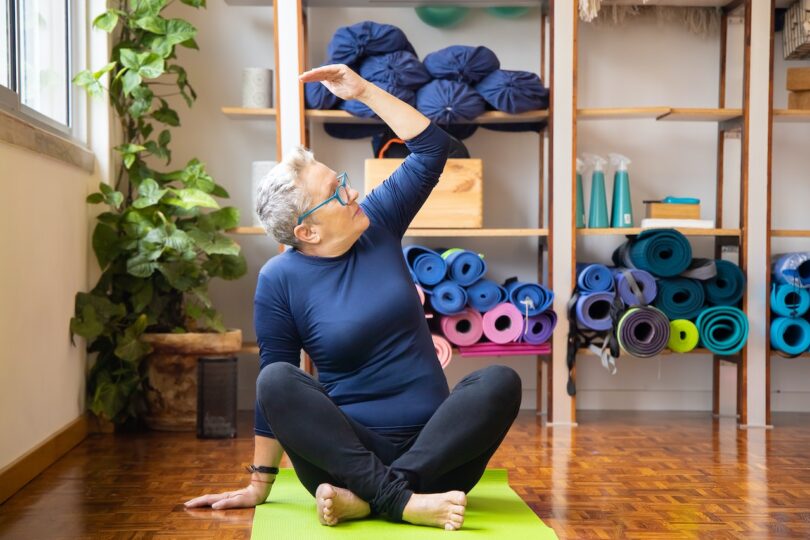Dementia is a progressive brain disorder that affects millions of seniors worldwide. It can cause memory loss, confusion, and difficulty with daily activities. As a caregiver, you want to find ways to help your loved one with dementia maintain their physical and mental well-being. Yoga is a gentle form of exercise that can be adapted for seniors with dementia, and it can be a beneficial addition to their care plan. In this blog post, we will discuss how to adapt yoga for seniors with dementia and the benefits it can have for both seniors and caregivers.
Understanding Dementia
Dementia is a broad term that describes a decline in cognitive abilities, including memory, reasoning, and communication. It can also affect a person’s ability to perform daily activities. The most common type of dementia is Alzheimer’s disease, which affects 60-80% of people with dementia. Other types of dementia include vascular dementia, Lewy body dementia, and frontotemporal dementia.
The Benefits of Yoga for Seniors with Dementia
Yoga can be an effective form of exercise for seniors with dementia, as it can help to improve physical and mental well-being. Yoga poses, or asanas, can help to improve flexibility and range of motion, which can reduce pain and stiffness in the joints. Yoga can also help to improve balance and stability, which can reduce the risk of falls. Additionally, yoga can help to improve overall strength and endurance, which can make it easier to perform daily activities.
Yoga can also have a positive impact on the mind, and it can help to reduce stress and anxiety, improve mood and cognitive function, and promote a sense of well-being. Yoga breathing exercises, or pranayama, can help to calm the mind and reduce agitation.
Adapting Yoga for Seniors with Dementia
When adapting yoga for seniors with dementia, it is important to keep the following tips in mind:
- Keep it simple: Use simple, easy-to-follow instructions and focus on a few basic poses.
- Use props: Yoga blocks, straps, and blankets can help to make poses more comfortable and accessible for seniors with dementia.
- Use music and verbal cues: Music can help to set the mood and verbal cues can help to guide the senior through the poses.
- Use repetition: Repetition can help to create a sense of familiarity and comfort for the senior.
- Be patient: Seniors with dementia may have difficulty following instructions and may need extra time to complete the poses.
Benefits for Caregivers
Caring for a senior with dementia can be challenging, and it can take a toll on a caregiver’s physical and mental well-being. Yoga can be an effective way for caregivers to reduce stress and improve their own well-being. Yoga can help to reduce anxiety, improve mood and cognitive function, and promote a sense of well-being.
Starting a Yoga Practice
When starting a yoga practice for a senior with dementia, it is important to keep the following tips in mind:
- Consult with a healthcare professional: It is important to consult with a healthcare professional to ensure that yoga is safe and appropriate for the senior.
- Find a qualified instructor: Look for a qualified instructor who has experience working with seniors and is familiar with adapting yoga for dementia.
- Start slowly: Start with a few basic poses and gradually increase the number of poses as the senior becomes more comfortable.
- Practice regularly: Practicing yoga regularly can help to maintain the benefits and improve overall well-being.
- Make it fun: Encourage the seniors to have fun and enjoy the practice. Use props and music to make it more enjoyable.
Conclusion
In conclusion, yoga can be a beneficial form of exercise for seniors with dementia. It can help to improve physical and mental well-being, reduce stress and anxiety, and improve overall quality of life. Caregivers can also benefit from yoga, as it can help to reduce stress and improve their own well-being. When adapting yoga for seniors with dementia, it is important to keep it simple, use props, use music and verbal cues, use repetition, and be patient. With regular practice, yoga can be a valuable addition to the care plan for seniors with dementia.








Leave a Comment